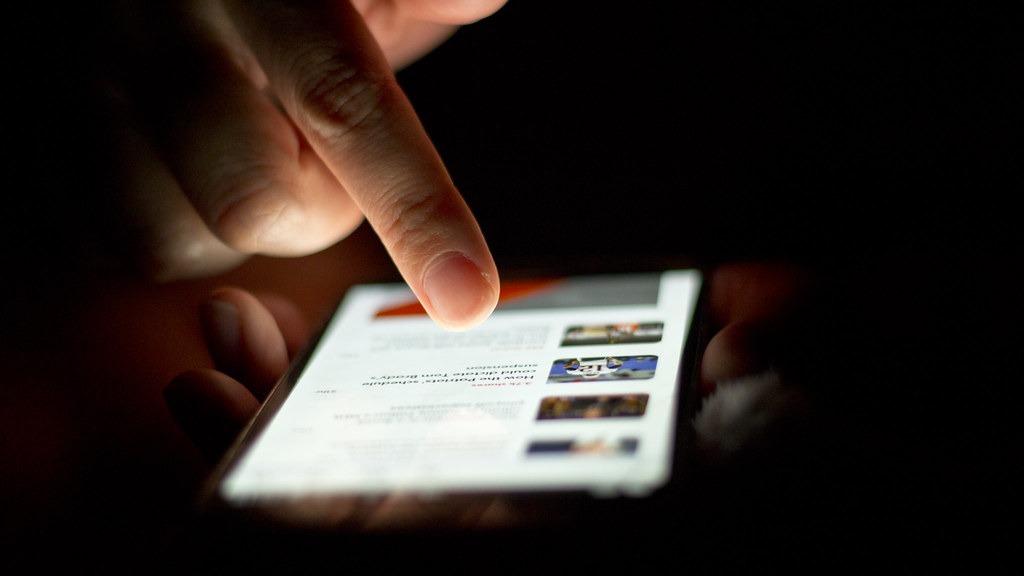Doomscrolling: Is it time we gave up?
Doomscrolling refers to the compulsive intake of negative news content and brings together two growing features of how we consume media as a society. The first term, doom, reflects the growing struggle to cope with a world that feels increasingly fractious and uncertain. The second term reflects our growing tendency to consume media and entertainment in increasingly bite-sized packages, designed to keep us interminably hooked.
Together, these two forces have conspired to bring about a completely new media diet that has grown to such prominence that the Oxford Dictionary named it its word of the year in 2020. But how should we feel about this development? Is doomscrolling just another way of keeping up with what’s happening in the world or a recipe for inducing despair?
The addictive nature of doom scrolling can be linked to a universal urge to feel secure
Whilst we do not know the full impact of doomscrolling, it seems to be the case that it has the joint effect of both mollifying and depressing us, keeping us in a permanent state of lethargic dissatisfaction. On the one hand, the addictive nature of doomscrolling can be linked to a universal urge to feel secure. Dean McKay, a psychology professor who specialises in compulsive behaviour and anxiety disorders, writes that our attraction to negative news content is linked with our desire to feel that “Things are pretty horrible [but] I’m comfortable so I’m going to be able to sleep well tonight, knowing that [I can feel good about] my station in life.’’
On the other hand, increasing evidence suggests it has been attributed to anxiety and depression. A sustained exposure to scenes of extreme suffering leaves us feeling helpless in the world without providing any guidance for coping with these feelings. Moreover, those with pre-existing mental health conditions face a continued risk of negative impacts on well-being from consuming too much negative content.
And yet, something is keeping us doomscrolling beyond its addictive nature. Despite its negative impacts on our mental health, it seems bearing witness to the misfortunes and injustices suffered by others is an important part of remaining conscientious global citizens. We share images of war and natural disasters on our social media so that those around us can donate to those affected or join in protest. We also share these images because turning a blind eye seems to be a disservice to those suffering serious plight.
It would therefore seem wrong, on the surface, to discount this behaviour just because it has a side effect of worsening our mental health. After all, if ignorance is bliss, we might have to accept that conscientiousness will never be a bed of roses. It’s a dilemma that many young people who want to be engaged face and one that is increasingly discussed in activist circles: how to negotiate the tension between fighting for change and protecting one’s mental health.
After all, if ignorance is bliss, we might have to accept that conscientiousness will never be a bed of roses
However, this genre of argument critically fails to distinguish between media that is likely to bring people together to bring about constructive action and media that is likely to keep us isolated and despondent. The compulsion to seek out negative news falls into the latter category.
Negative news media on platforms such as YouTube, Instagram, or TikTok are not suggested to us because it is morally required of us to see them but because they are addictive. We should question our consumption of ‘‘doom’ in the same way that we should question any content that is repeatedly thrust in our faces by social media algorithms because it is a matter of safeguarding our attention and making sure that what we are focusing on is enriching our lives instead of keeping us in a permanent state of confusion and stasis. Such is the warning Julia Bell offers in ‘Radical Attention’ on doomscrolling, writing that ‘over time trained by the software, the user…oscillates between anxiety and the alleviation of anxiety, over and over, and bouncing between those positions makes it impossible to think.’’
This proves to be dangerous because thinking and acting collectively, as the humanist creed goes, is the only reliable way of alleviating the suffering in the world that exists whether we directly witness it or not. Where an unhealthy media diet inhibits our ability to do this, we should be deeply suspicious.

Comments